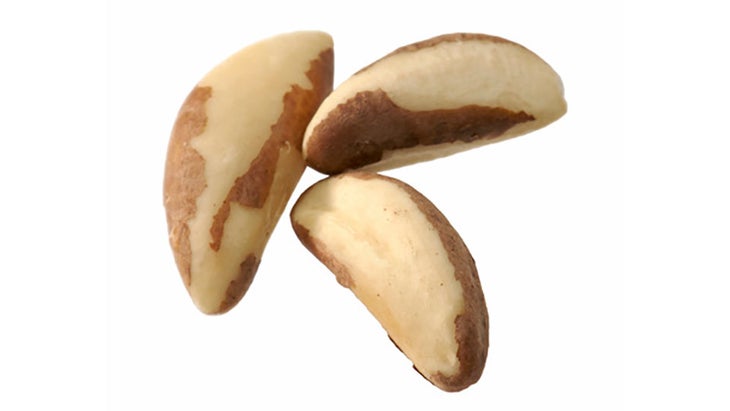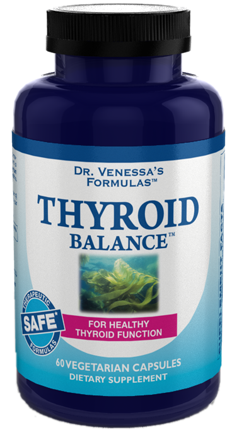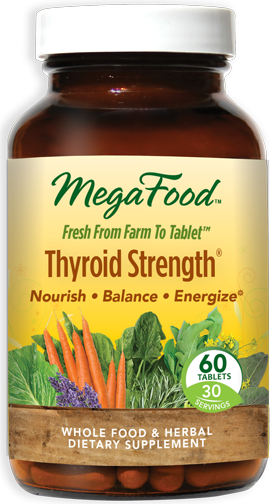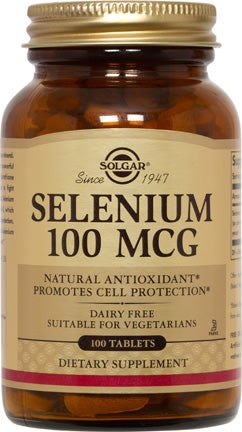Are You Hypothyroid?
Know the symptoms, how to test, and supplements that can help
Get full access to Outside Learn, our online education hub featuring in-depth nutrition, fitness and adventure courses, and more than 2,000 instructional videos when you sign up for Outside+..
What is hypothyroidism?
Hypothyroidism refers to below-normal activity of the thyroid gland. Located in the neck, the thyroid regulates your metabolism—that is, how efficiently you burn food for energy—and maintains your body temperature. It secretes several hormones, of which T3 (triiodothyronine) and T4 (thyroxine) are the most important. A normal thyroid gland converts T4 to T3.
What are the symptoms of hypothyroidism?
The most common symptoms of hypothyroidism include:
- feeling tired a lot
- gaining weight
- having cold hands and feet
- hair loss
- dry skin
- reduced sex drive
- depression
Middle-aged women are affected by this disorder more than any other group. Hashimoto’s thyroiditis, an autoimmune disease, is the most common cause of hypothyroidism.
How to get tested for hypothyroidism
Most doctors test for only T4 and thyroid-stimulating hormone (TSH). Instead, ask your doctor to test for “free T3” and “free T4.” Your T4 may be normal, but if your T3 is low or low-normal, you are not efficiently converting T4 to T3.
Self-Testing for hypothyroidism
Immediately on waking, slip an oral glass thermometer in the fold of your armpit for 10 minutes. Write down the temperature, and do this for three days in a row. Add all of the temperatures, and then divide by three to obtain an average. If your average temperature is 97.7 degrees or less, you are probably hypothyroid. Don’t do this test during your period or when you’re ovulating because your body temperature will be higher at these times.
What causes hypothyroidism?
Aside from Hashimoto’s thyroiditis, deficiencies of several nutrients can impact thyroid function.
Conventional treatments for hypothyroidism
The most common medical treatment is synthetic T4. Natural forms of T3 and T4, derived from porcine thyroid glands, are available by prescription.
6 supplements for hypothyroidism
Several supplements can often help people with hypothyroidism:
1. Selenium
The body uses selenium to make deiodinases, enzymes that convert T4 to T3. In a two-year study, researchers at the U.S. Department of Agriculture found that taking 200 mcg of supplemental selenium increased T3 levels in men and T4 levels in women. A separate study, conducted in Europe, showed that 200 mcg of selenium daily reduced antibodies and improved mood and well-being in people with Hashimoto’s thyroiditis.
Try: 200 mcg of selenium. Never take more than 400 mcg daily without specific guidance from your physician.
2. Iodine
T3 contains three atoms of iodine and T4 contains four atoms of the mineral. Multivitamins and kelp supplements contain enough iodine for prevention, but not to help normalize low thyroid function.
Try: 1,000 to 5,000 mcg of iodine, for at least a couple of months before reducing the amount.
3. L-tyrosine
This nutrient forms the chemical basis of your thyroid hormones.
Try: 500 mg of L-tyrosine immediately on waking, about 10 to 15 minutes before consuming any food or liquid other than water. Stop taking L-tyrosine if you have an unsafe increase in blood pressure.
4. Vitamin D
It’s not clear whether low vitamin D is a cause of hypothyroidism. However, research shows that vitamin D deficiency is present in 92 percent of patients with Hashimoto’s thyroiditis.
Try: taking 5,000 IU daily of vitamin D.
5. Multivitamin/multimineral
A multivitamin/mineral supplement guards against micronutrient deficiencies. Vitamins B6 and B12, zinc, chromium, and iron all play roles in normal thyroid function.
6. Glandular supplements
Some glandular supplements contain thyroid tissue that has been obtained from bovine sources. These products are available without a prescription, but are best taken under the guidance of a physician.
Iodine-Rich Foods

Seafood and seaweed contain large amounts of iodine, and brazil nuts are the richest natural source of selenium. All animal proteins contain L-tyrosine. It’s important to avoid foods containing goitrogens, substances that interfere with normal thyroid activity. These foods include cruciferous vegetables, soy, pine nuts, peanuts, and millet. Cooking usually inactivates goitrogens.
Adrenal Exhaustion or Hypothyroidism?
It’s sometimes difficult to distinguish the symptoms of “preclinical” adrenal exhaustion from hypothyroidism. Adrenal exhaustion is characterized by abnormally low levels of cortisol, a hormone that buffers us against stress. Under prolonged stress, cortisol levels rise; adrenal exhaustion occurs when the body can no longer make enough of this hormone. Vitamin C and the B-complex vitamins, particularly pantothenic acid, are needed to make cortisol. Whole licorice root extract contains glycyrrhizin that blocks the body’s breakdown of cortisol so normal levels of the hormone can be restored.
Supplements for Thyroid:

DR. VENESSA’S FORMULAS Thyroid Balance is an award-winning blend of top thyroid boosters including iodine, selenium, vitamin D3, and L-tyrosine.

MEGAFOOD Thyroid Strength sources key thyroid balancing minerals and nutrients from whole foods including iodine-rich kelp powder.

SOLGAR Selenium 100 MCG provides 100 mcg of this essential trace mineral in a natural form derived from yeast.